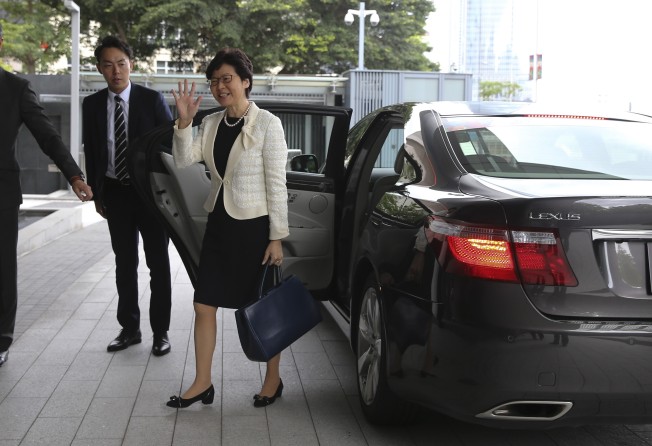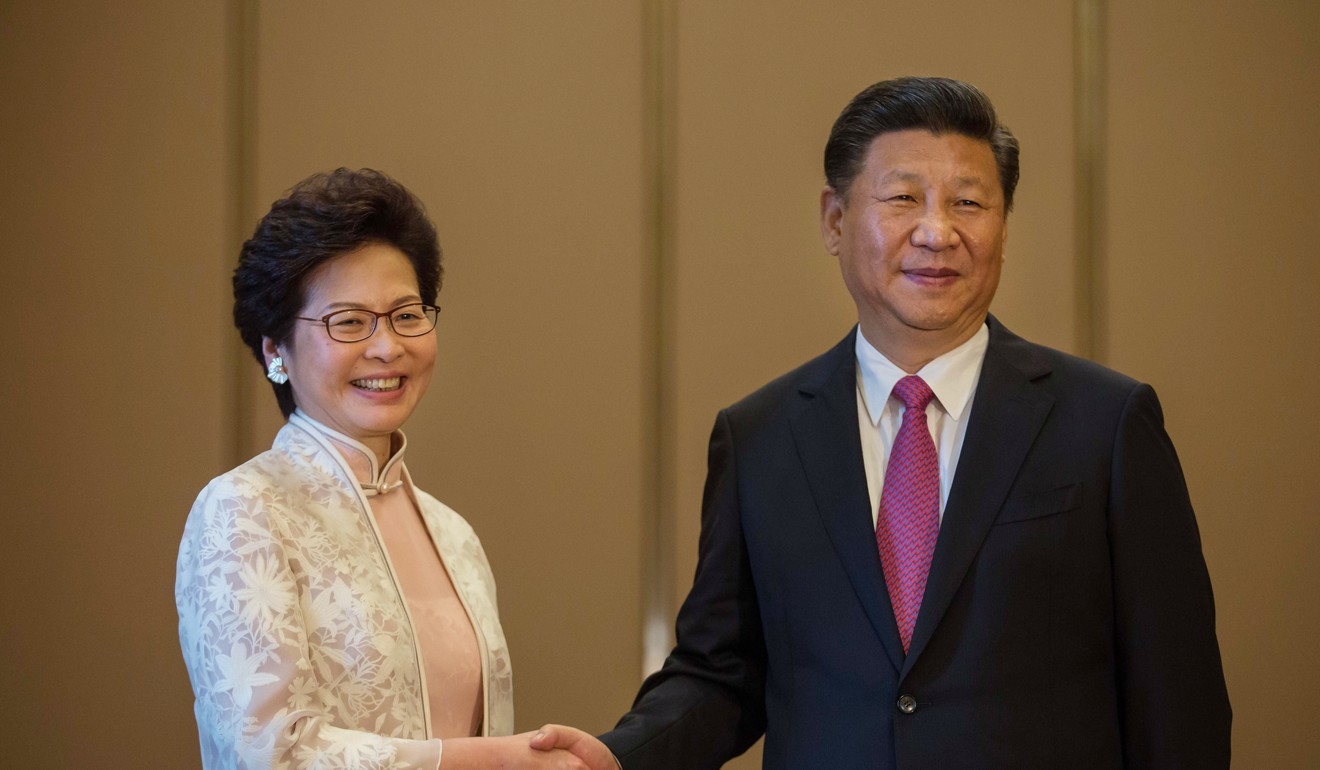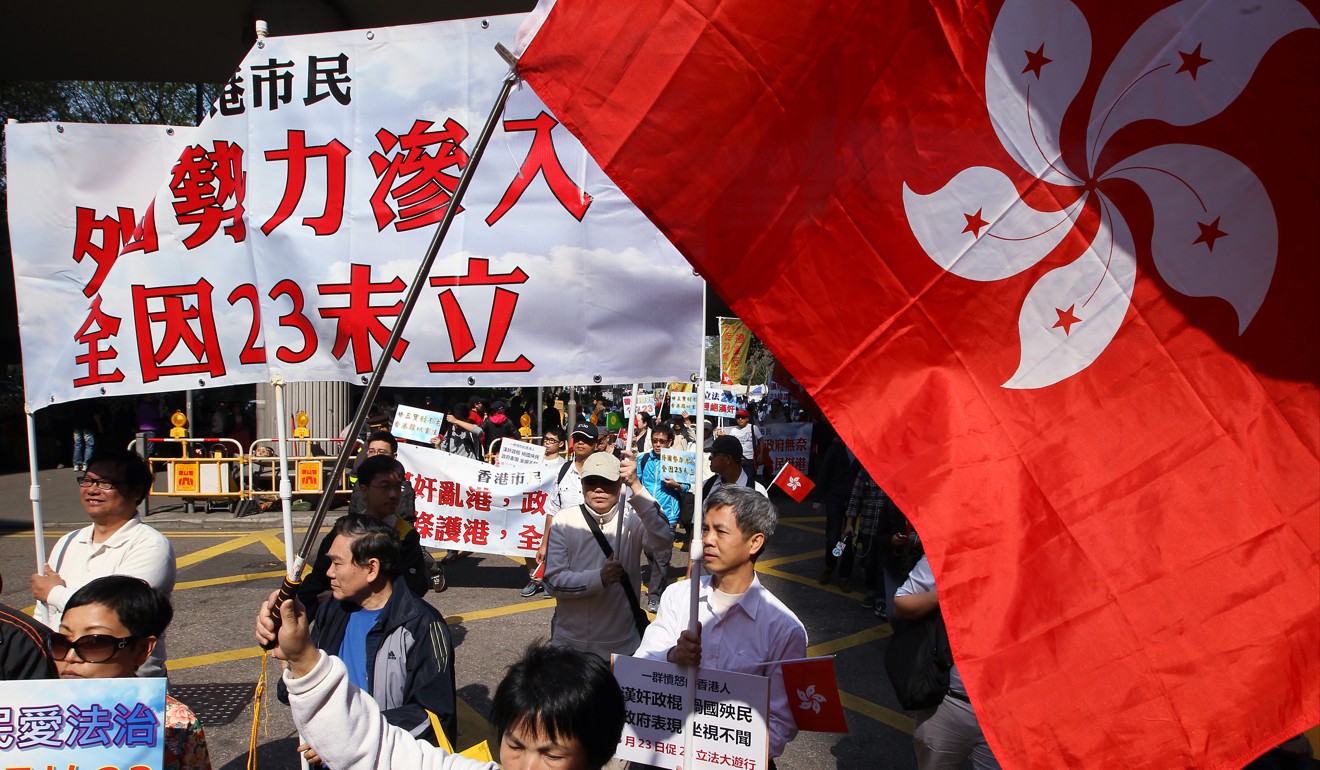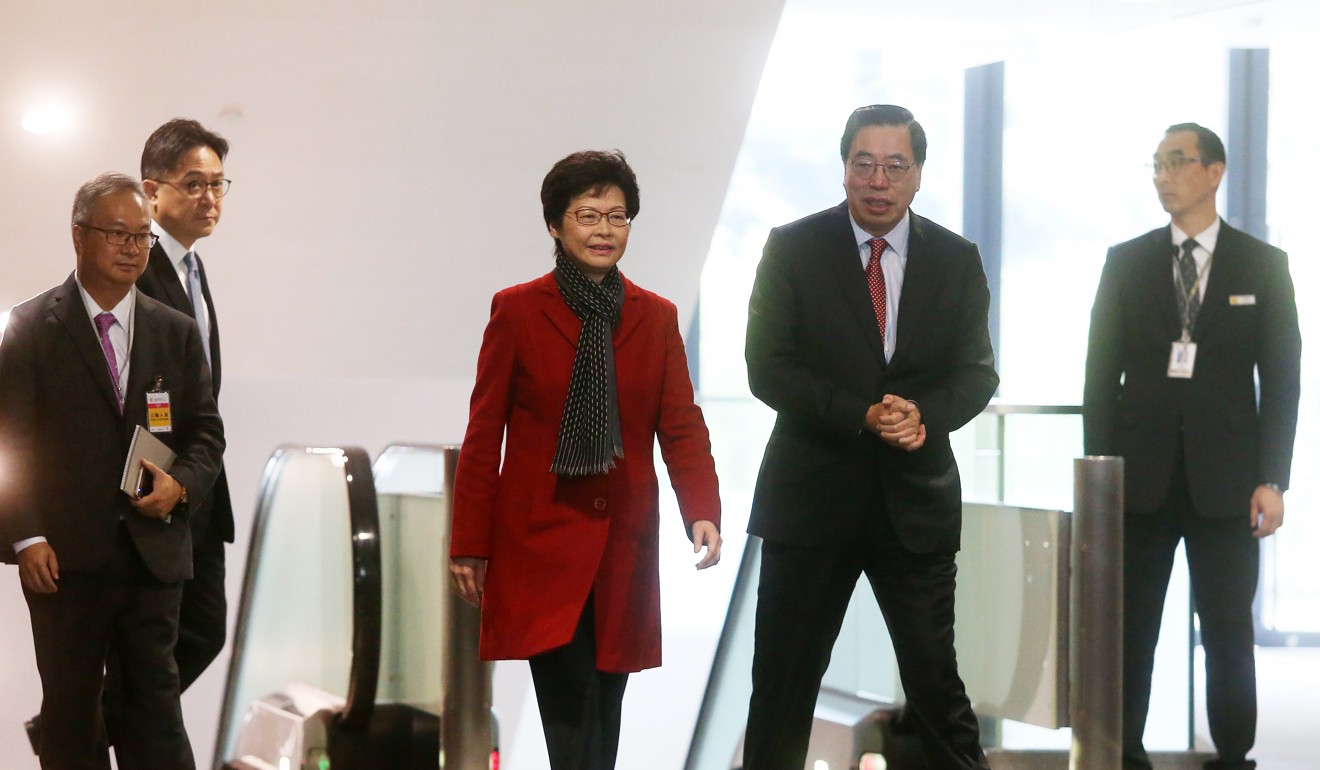Hong Kong leader Carrie Lam calls for national security law push, but no clear time frame
Chief executive vows to take ‘a leading and proactive role’ in passing the sensitive legislation, but admits conditions must be favourable

The Hong Kong government needs to take a leading and proactive role in introducing a national security law otherwise it will fail its duty to the central government, the city’s new chief executive said on her first official workday.
While giving her clearest stance on the controversial subject, Carrie Lam Cheng Yuet-ngor avoided committing herself to a time frame for the legislation, which she deemed beyond her control.
But Lam said the government would seek to create favourable conditions for the legislation and lead a rational public debate.
“The government is to create conditions,” she said, identifying two areas.
“One is to see what the major controversial areas of enacting the legislation are, say, having a review of the previous bill and seeing what the public was most concerned about during discussions [last time].”
“Another is that there has to be rational analyses and discussions. Also, there is a need to have good communications with the pan-democrats. There are a lot of details to be sorted out.
Lam said Eric Chan Kwok-ki, director of the office of the chief executive, had been working extensively with pan-democrats in general and hoping to have rational exchanges.
But she admitted that Article 23 was contentious and could not be pushed too hard. “If conditions are not favourable and you still press ahead, it would be like banging your head against a wall.”
The new chief executive revealed her plan in a media briefing with senior media editors on her first workday since being sworn in on Saturday.
During her campaign for Hong Kong’s highest office, she tried to avoid committing herself to national security legislation. While she acknowledged that passing a national security law under Article 23 of the Basic Law was a “constitutional duty” for Hong Kong, she wrote in her manifesto that “past experience tells us that this subject is highly controversial and could easily cause social disturbance”.
However, Lam on Monday emphasised the city’s obligation under its mini-constitution: “If the government does not take a role in the subject, it fails its duty to the central government. We shall take a leading and proactive role.”

Under Article 23, Hong Kong is required to enact its own national security law to ban treason, secession, sedition or subversion against the central government.
But after a failed bid in 2003, local authorities have yet to decide when to resume their pursuit of the legislation.

In a speech at an event marking the inauguration of the Lam administration last Saturday, visiting Chinese President Xi Jinping stressed the need to, among others, improve Hong Kong’s systems to uphold national sovereignty.
Xi also warned against any attempt to undermine national sovereignty or challenge the central government’s authority, saying such an effort would cross a “red line” and was “absolutely impermissible”.
The president added that the concept of “one country, two systems” was meant to realise and uphold national unity. The remark was widely interpreted as a mission for Lam to complete in her term.
Asked if she had been given a deadline, the chief executive said the matter was “out of my control”, adding: “What I can do, I will do.”.

Basic Law Committee vice-chairwoman Elsie Leung Oi-sie said Lam had the determination to start the Article 23 legislative process, but agreed an effort should take place under a conducive atmosphere, else it would only contribute to rancour in the city.
Civic Party leader Alvin Yeung Ngok-kiu believed that passing Article 23 would not be easy.
“Neither [of her predecessors] Leung Chun-ying, who was the most conservative of the chief executives, nor Donald Tsang Yam-kuen, who once enjoyed the highest popularity rating, tried to launch the legislative process for Article 23 during their term,” he said. “This shows how complicated it is.”
Pro-establishment lawmaker Dr Priscilla Leung Mei-fun said it was wise for Lam to take a proactive role.
“That means there is a possibility the issue could still be in the hands of Hongkongers. Otherwise, Beijing may lose patience and will do it for us,” she said.
Key points of controversial 2003 bill
1. Treason
Joining forces with a foreigner to overturn the central government or compel it to change its policies or measures
2. Secession
Using war or threat of force to withdraw a part of the country from its sovereignty
3. Sedition
Inciting others to public disorder, seriously endangering city’s stability
4. Subversion
Attempting to overthrow the central government or to disestablish the basic system of the state
5. Theft of state secrets
Unlawful disclosure of security, intelligence and defence information
CONTENTIOUS AREAS
1. Treason
Concern: The offence of treason should require a specific intent
2. Subversion
Concern: The government should define what acts amount to disestablishment of the basic system of the state.
3. Sedition
Concern: There is no limitation period for bringing prosecution for sedition
4. Theft of state secrets
Concern: Absence of any public interest defence